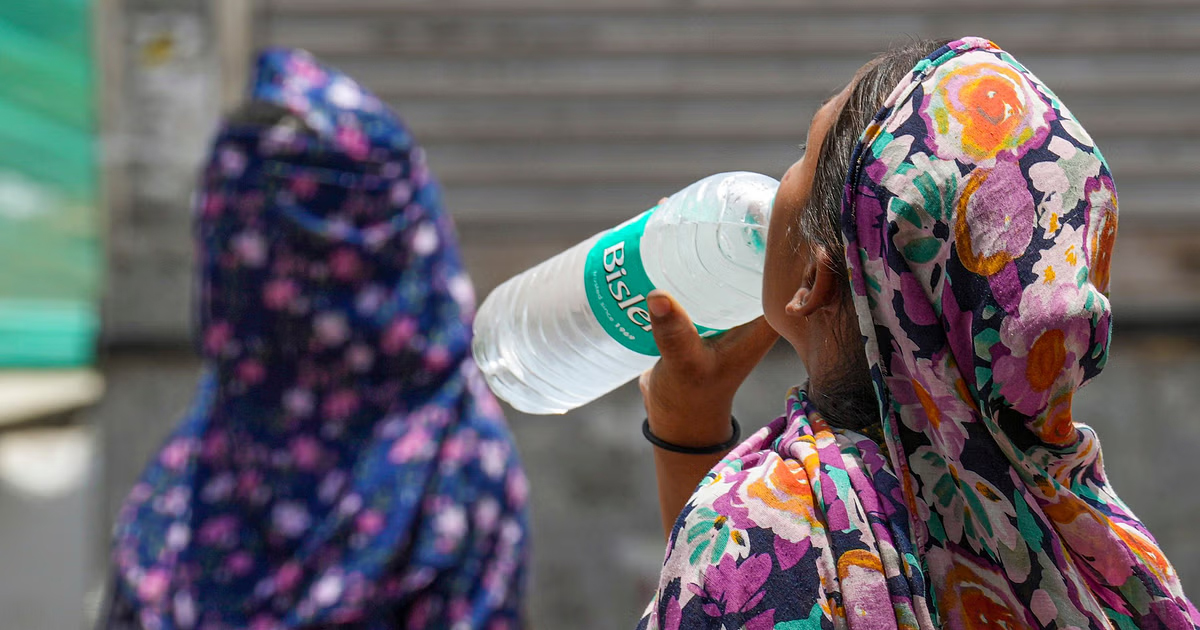 NEW DELHI, Apr 15: NEW DELHI, Apr 15:
Agencies
A heatwave can create conditions in the environment conducive for the next one, which can increase the chances of back-to-back heatwaves, a new study has suggested.
A team of researchers from the Indian Institute of Technology Bombay and Germany’s Johannes Gutenberg-University Mainz looked at why South Asia experienced extreme heat events one after the other during March and April 2022.
Temperatures reached extraordinary levels for that time of the year across the region, including India and Pakistan, which were consistently 3-8 degrees Celsius above average. The prolonged period of hot weather continued into May, too.
The findings of the study, published in the Journal of Geophysical Research: Atmospheres, also showed a “concerning pattern,” whereby the succeeding heatwave is more intense, the researchers said.
The extreme heat of the first heatwave removes moisture from the soil, making it dry. Excess dryness can then trigger a cycle of atmospheric processes, making the next spell even worse, they said.
Co-author Arpita Mondal, associate professor at IIT Bombay, explains, “Think of it like this — when (the) soil has moisture, under clear sky conditions, some of the sun’s energy goes into evaporating that moisture rather than heating the air.”
“But when the soil is already dry, all that energy goes straight into making the air hotter,” she said.
Comparing the heatwaves of March and April, the team found that each was driven by a different atmospheric process — the former by winds in high altitudes and the latter by dry soil conditions, which were created as a result of the former.
“Our analysis shows that the March heatwave was primarily linked to a sudden increase in the amplitude of short-lived atmospheric Rossby waves, which are large-scale meanders in high-altitude winds, resembling bends in a winding river,” said lead author Roshan Jha, IIT Bombay.
“The waves grew stronger as high-altitude westerly winds near the poles (extratropical jet stream) transferred energy to westerly winds closer to the equator (subtropical jet stream) as they came closer during the heatwave,” Jha said.
However, the April heatwave was found to be triggered differently, primarily caused by very dry soil conditions and a transfer of heat to India from the northwestern land regions of Pakistan and Afghanistan.
Importantly, these dry conditions were partly created by the earlier March heatwave, which had already dried out the land through high temperatures and clear skies, the authors said.
“Our findings indicate that waveguide interaction together with equatorward energy transfer drives early heat in March, subsequently setting the stage for further heat in the following weeks by depleting soil moisture levels,” they wrote.
With a warmer future gaining more certainty in recent times, wind patterns continue to be affected and identifying these changes helps better predict and mitigate the impacts of future heatwaves, Subimal Ghosh, institute chair professor at IIT Bombay.
“Understanding these mechanisms is crucial for improving our ability to forecast and prepare for extreme heat events in South Asia,” said Ghosh.
The extreme heat events of March and April 2022 were estimated to have a chance of occurring once in 100 years, with climate change having made these events 30 times more likely, according to an attribution study published in 2023 in the journal Environmental Research Climate. |
